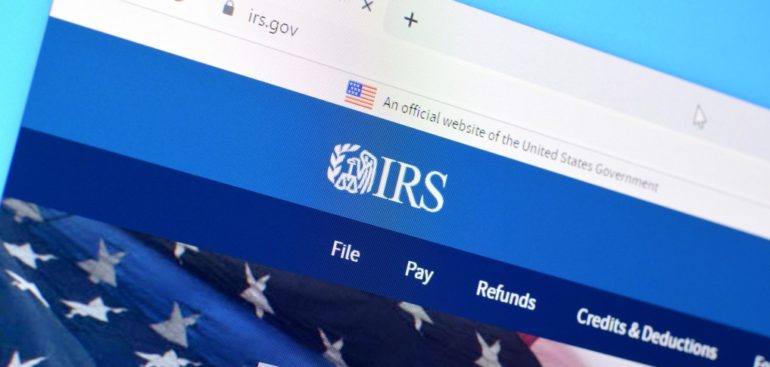If you owe back taxes, tax liens (and their siblings, tax levies) can affect you seriously if you don’t take proper action. In this guide, we give you all the details you need to know about tax liens, as well as ways to remove them if you get caught in their net.
What Is a Tax Lien?
In simple terms, a tax lien is a claim the government makes on your financial assets (usually your real estate – see a house or another property) when you have not paid your income taxes on time. A tax lien is the first red flag you will get for failing to take care of your income tax obligations. At this point, you don’t risk having your assets seized. However, if you decide to sell the asset, you can expect the government to claim some of the proceeds (or all of them, depending on the sum you owe). However, do bear in mind that a tax lien may appear on your credit report and could:
- Affect your ability to get a loan or keep a security clearance.
- Stick with you even if you file for bankruptcy.
- Be a blockage for you when on a job hunt.
- Cause your creditworthiness to take a nosedive (the IRS will notify creditors of your financial situation by filing a public notice of the tax lien).
- Prevent you from refinancing or selling your home (during title searches, things like tax liens do surface).
- Cost you a lot of time if you need to go through the IRS automated collection system (ACS) or a revenue officer that requires you to pay them a visit in person.
A tax levy comes right after a tax lien and has the power to seize your property and bank accounts or even garnish your wages so that the government can eventually get its owed taxes from you. Note that you may receive a lien immediately after the IRS has assessed the tax. Nevertheless, it may take up to several months before the IRS figures out that you have not paid your taxes.
What Is a Federal Tax Lien?
Just like a tax lien, a federal tax lien is a federally-authorized lien placed against your assets (or any of them) for back taxes that have not been paid. It gives the US government the right to take or keep your personal property until you pay your due federal taxes. The steps involved from the moment the IRS realizes that you owe money to the government to the point they finally collect their money, are as follows. The IRS will:
- Assess the liability.
- Notify you with a Notice and Demand for Payment.
- After that comes a public Notice of Federal Tax Lien that all creditors will be able to see.
- Secure your property to secure payment if you continue to have your taxes unpaid, be it an estate, gift, self-employment, income tax, or another.
Remember that when served a federal tax lien, any assets you may acquire during the lien may also be placed on a tax lien. Overall, a federal tax lien will most likely downgrade your credit score substantially, given that the IRS notifies creditors and individual states that you owe back taxes and that they are the first in line to receive payment for these unpaid taxes. In many instances, you may even be required to pay your due taxes in full so that you can regain your ability to receive any kind of financing.
What Is a State Tax Lien?
This is slightly different from a federal tax lien as it is imposed by the state government. However, it still gives the government authority to secure the owed tax by exercising a legal right over your property, be it personal or real estate. Before any action is taken, the state issues a Notice of State Tax Lien after your tax liabilities are assessed, and a Final Bill for Taxes Due (or a Bill for Taxes Due) is then sent to you. The waiting period between the Bill for Taxes Due and the Notice of State Tax Lien is 35 days. Within that time, you need to reach some sort of appropriate resolution (if you cannot settle your tax debt). Until you do, though, the lien will remain on the property in question.
Notes:
- It may take up to three years for the IRS to assess liabilities on federal income taxes (from the date you are required to file or file a tax return). This legal time frame is called a Statute of Limitations, during which the IRS can bring legal action against you.
- A statute of limitations can be extended to six years if you underestimate your gross income by over 25%.
- A statute of limitations can have no time limit if you fail to file a return (fraudulent or not).
- Some states follow the 3-year statute of limitations rule (see Ohio, Wisconsin, Michigan, Kentucky, Colorado, California, and Arizona) while others follow the 3-year plan for income taxes owed to the state (i.e., Tennessee, Oregon, New Mexico, Louisiana, and Kansas).
If you find yourself dealing with a state lien, it is advised to consult with a tax professional to have all your questions about things like the statute of limitations in your state answered.
A tax professional is undeniably your best line of defense when you want to protect yourself against liens and levies placed on your wages, assets, property, and bank accounts (and get out of the troubles brought by a state or federal tax lien). It is critical that you reach a settlement with the IRS (or appeal a lien) before they place a levy on your property or bank account, to prevent your assets from being seized.
How to Find Out If You Have a Tax Lien
As already mentioned above, the IRS will most likely notify you if a federal tax lien has been filed by sending you a Notice of Federal Tax Lien. In general, a federal lien is effective almost immediately after the IRS issues a written demand for payment of due taxes (within the next 10 days or so).
Nevertheless, you could find out whether you have a federal lien tax on your own. Given that tax liens are placed with local authorities, we suggest you visit your state’s Secretary of State website. There should be an option that reads UCC Search or Lien Filing. In either case, you will be called to enter some personal details, such as your filing name and other ID information, so you can retrieve the data you seek.
Other than that, another great resource to figure out if you have a lien is legal databases, which usually offer access to up-to-date information on tax liens for a fee. Now, since your state may also place a lien on your property if you fail to pay the local taxes on time, you may want to check with the county in which your financial asset (the one that a lien may have been placed on) is located. The process varies among states. However, you will need the assistance of your state government offices to help lift your lien and pay your back taxes. In New York, for example, this procedure entails you call (518) 457-5434 or use your online services account to pay your tax bill. Other states offer a wide range of payment options – even provide you with the chance to set up a payment plan for a small fee (see California).
Note: As soon as you pay your tax debt, remember to request a copy of your credit report so that you can check that the lien has indeed been lifted. If it has not been removed, do contact the relevant credit bureaus to sort this issue out with them.
Can You Sell a House With a Tax Lien?
Yes, it is possible to still be able to sell your home if you have a lien on it. Of course, some conditions need to be met. For instance, you should ensure that you pay your tax lien first and then refinance or sell your home.
You have two options here (1) pay the lien before you close the deal (you add the lien amount to your expenses) or (2) clear the lien by paying the taxes on your own before selling your house. If the latter is not doable (though, it is the best course of action since a property lien is listed on the title report, which may trouble or worry potential buyers), you could consider the following:
- File For Chapter 13 Bankruptcy – This is a handy solution that will give you a greater negotiating power. But, that’s all there is to it. Although it will NOT clear your debt, it may open the road for a payment plan that serves you so you can repay your due taxes over a period of time.
- Dispute The Lien – Pursue this option if you believe that a lien has been wrongly placed on your property. In this case, the creditor may be willing to lift the lien. In any other case, you can bring your case to the court. If you win, your lien will be released. If you lose, you may be able to work something out with the creditor (some sort of settlement) to reduce the due amount.
- Apply For a Subordination – The IRS may discharge the sum of your back taxes so that you can sell or refinance your property or restructure your mortgage. This means that the IRS will sell (subordinate) your debt to other creditors, who will wait for the closing of the deal to get paid. So, basically, your debt goes from the IRS to another creditor. That way, the title of your home is clear (and is passed on to the buyer clear) while you will still be called to pay the back taxes to the 3rd-party creditor. To apply for a subordination, you could use the services of creditors with liens (i.e., a mortgage company) or apply for a program like the Direct Debit Installment Agreement to have your lien withdrawn after making the needed payments.
- Increase The Selling Price – If nothing of the above works, you could add the amount you owe to the IRS to the selling price of your home to cover the property tax lien. Just ensure that the real estate market supports the asked price (the current market value should be around the price at which you are selling your house so that it is attractive to potential buyers). Also, don’t forget to pay your lien before you transfer the ownership of the house. That way, your buyer will get a clear title.
How to Remove a Tax Lien
If you cannot afford to pay your back taxes, which is the single most effective way to stop a tax lien, you could come to some sort of agreement with the IRS. We suggest exploring options like an Offer in Compromise, which may help you settle your back taxes for less than what you really owe. In this case, though, take note that being accepted is quite a long shot. You will also need to fulfill certain conditions:
- You have filled all of your tax returns.
- You are not being audited.
- You are not in bankruptcy.
- You have made the needed estimated tax payments for the current fiscal year.
You may use this handy tool to check whether you qualify for an Offer in Compromise or not.
Alternatively, you could consider getting on an IRS payment plan, such as the Direct Debit Installment Agreement, where you grant the IRS the right to take three or more consecutive payments out of your bank account. That way, you may be able to convince them to remove your tax lien from public records. That being said, you will still have to pay penalties and interest (and your tax debt, of course) until your tax balance is paid off.
This list could go on forever. So, do reach out to us. Let’s sit down and go through your options together. Our expert tax relief professionals know the way to get you out of debt or at least relieve you of your financial strains considerably. Contact us today for a free tax consultation.




